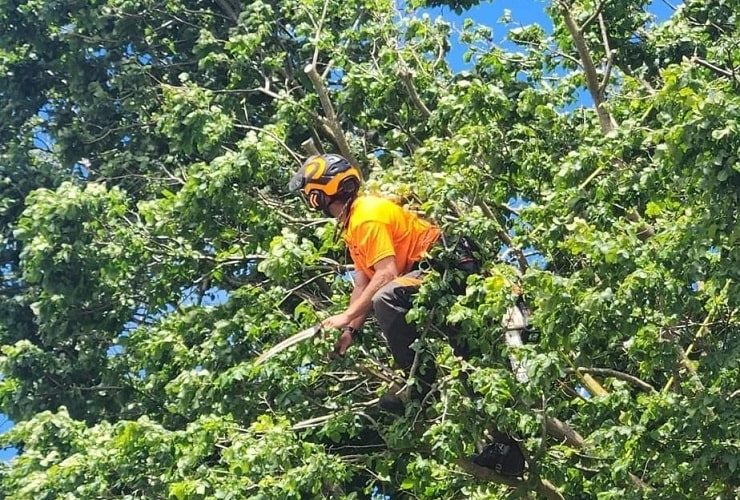The Art of Tree Pruning in New Zealand

The Art of Tree Pruning in New Zealand
Tailoring Pruning Techniques for Native and Exotic Species
New Zealand boasts a diverse range of native and exotic tree species, creating a unique landscape that demands specialized care. Tree pruning, a fundamental aspect of arboriculture, takes on a distinctive character in this island nation. So what is tree pruning, and how does it differ for the various tree species found in New Zealand?
Understanding Tree Pruning
Tree pruning involves the selective removal of branches or stems to enhance the overall health, structure, and appearance of a tree. Common objectives include removing dead or diseased branches, improving overall tree structure, and promoting optimal growth.
Pruning trees also plays a role in risk reduction, as removing weak or potentially hazardous branches helps prevent accidents and property damage. Additionally, thoughtful pruning can enhance sunlight penetration, air circulation, and aesthetic appeal, contributing to the overall well-being of the tree.
In New Zealand, where both native and introduced species coexist, understanding the specific requirements of each tree is crucial for effective and safe pruning.
Different Pruning Approaches for Different Species
- Native New Zealand Trees: New Zealand’s native flora includes iconic species such as the Kauri (Agathis australis), Pohutukawa (Metrosideros excelsa), and Rimu (Dacrydium cupressinum). Pruning native trees involves respecting their natural growth patterns and ensuring minimal interference. The focus is often on:
- Crown cleaning: Removing dead or diseased branches to enhance the tree’s natural form.
- Thinning: Promoting air circulation within the canopy, particularly in dense native forests.
- Exotic Ornamental Trees: New Zealand’s gardens and urban areas are adorned with a variety of exotic ornamental trees, such as the Cherry Blossom (Prunus serrulata), Magnolia (Magnolia spp.), and Liquidambar (Liquidambar styraciflua). Pruning approaches for these trees include:
- Canopy shaping: Emphasizing the aesthetic appeal of ornamental trees by carefully sculpting the outer edges of the canopy.
- Structural pruning: Enhancing the overall architecture of the tree to ensure a balanced and visually pleasing form.
- Fruit-Bearing Trees: Orchards in New Zealand flourish with fruit-bearing trees like Apple (Malus domestica), Nectarine (Prunus persica), and Avocado (Persea americana). Pruning these trees is vital for maximizing fruit production and managing tree size:
- Scaffold pruning: Establishing a sturdy framework of branches to support fruit-bearing loads.
- Thinning for sunlight: Ensuring adequate sunlight penetration into the canopy for optimal fruit ripening.
- Conifers and Evergreens: The diverse landscapes of New Zealand are dotted with conifers like the Totara (Podocarpus totara) and evergreens like the Rimu. Pruning these trees involves:
- Crown reduction: Managing the height of conifers to maintain harmony with the surrounding environment.
- Thinning cuts: Facilitating light penetration and reducing wind resistance in evergreens.
In the lush green tapestry of New Zealand, tree pruning is both a science and an art that requires a deep appreciation for the diverse flora that graces this beautiful land. Arborists must adapt their pruning techniques to the unique characteristics and growth patterns of each species, whether native or introduced. By doing so, we can contribute to the health, sustainability, and aesthetic appeal of New Zealand’s rich and varied tree populations, fostering a harmonious relationship between the natural world and human habitation.
Need Help Pruning?
Contact Beaver Tree Service for expert tree pruning and care!
North Island free phone: 0800423283
Christchurch free phone: 0800422328
